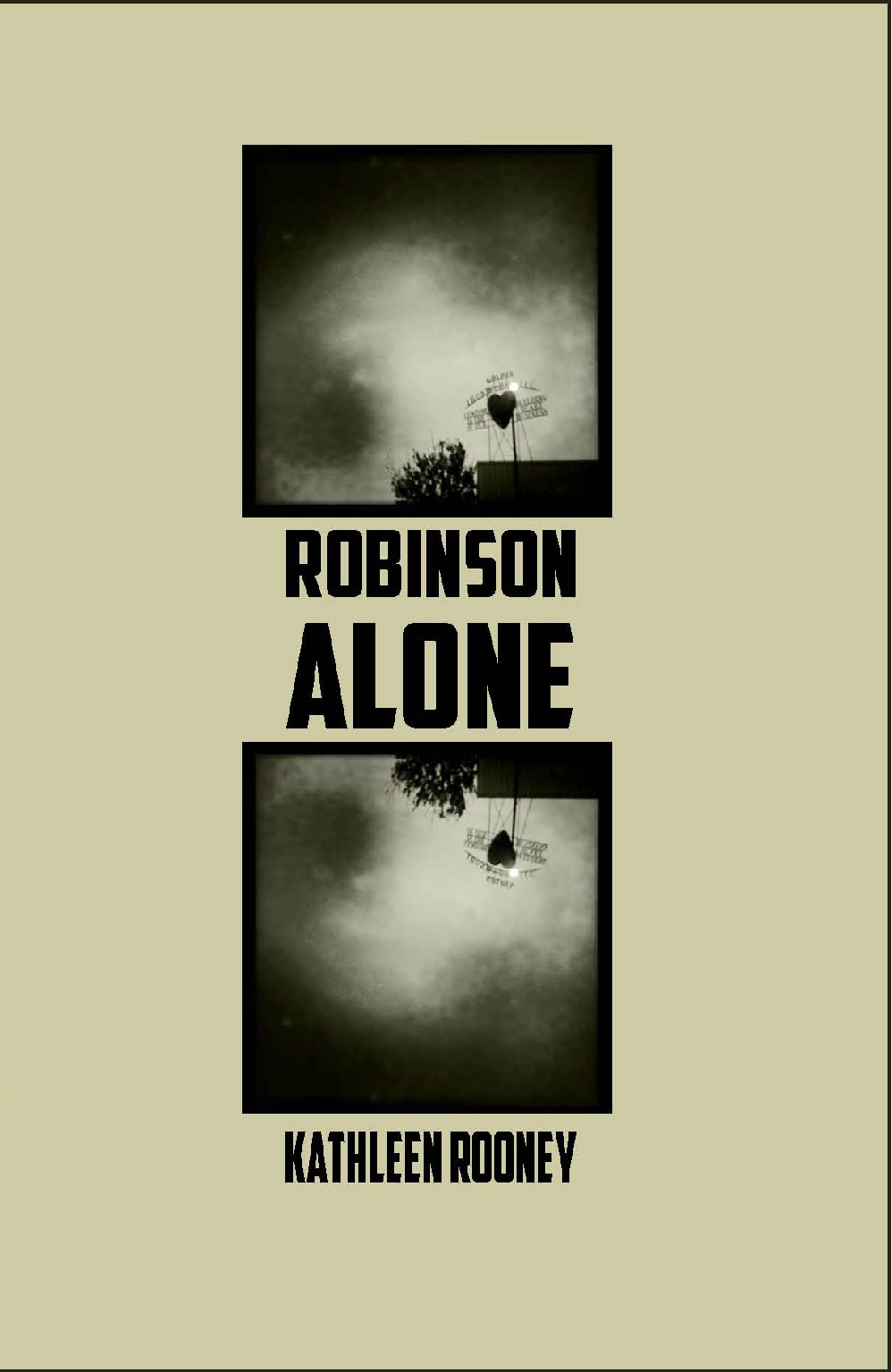| « Found Magazine Anniversary Show @ Old Town School of Folk Music | Curbside Splendor to Publish Anthology of Prose & Comics » |
Reviews Thu Nov 01 2012
Review: Robinson Alone by Kathleen Rooney
Kathleen Rooney's Robinson Alone, a novel in poems, imagines the adult life and eventual disappearance of poet, musician, and artist Weldon Kees through her character, Robinson. From leaving his small hometown to the police's discovery of his Plymouth Savoy on the North side of the Golden Gate bridge, Rooney fills in the moments, conceiving the circumstances that might have led the writer to orchestrate his vanishing from California, or perhaps, life altogether. In poetic form, with epistles woven in, Rooney speaks volumes in few words.
 Rooney is co-founder of Rose Metal Press, a small publisher focused on work that lives outside traditional genres with short shorts, flash, micro-fiction, and novels in verse among its titles. She lives in Chicago and his written several books of her own including For You, For You I Am Trilling These Songs (Counterpoint, 2010).
Rooney is co-founder of Rose Metal Press, a small publisher focused on work that lives outside traditional genres with short shorts, flash, micro-fiction, and novels in verse among its titles. She lives in Chicago and his written several books of her own including For You, For You I Am Trilling These Songs (Counterpoint, 2010).
A lonely cat and a pair of red socks soaking in the sink greeted friends and police who searched Kees' apartment for answers. The same goes for Robinson who, like Kees, brought a sleeping bag, wallet, watch and the contents of his savings account with him when he disappeared. He told a friend he was headed to Mexico, maybe for good, and asked another, the notable Pauline Kael, how she managed to keep going.
Rooney's Robinson Alone (Gold Wake Press) maps Robinson's departure from small-town life -- poet Weldon Kees' hometown of Beatrice, Nebraska to be exact -- to New York City and on to the West Coast. None of these geographical extremes are comfortable for Robinson for very long, and his restlessness is effectively palpable from page to page, propelling the narrative forward.
 Indeed, from the outset, Robinson is poised for escape. Rooney writes, "These elderly. Soon-to-be outgrown./ He simply must. Or bust. A loner/ill-suited to being alone. In a double-/breasted suit. En route to elsewhere."
Indeed, from the outset, Robinson is poised for escape. Rooney writes, "These elderly. Soon-to-be outgrown./ He simply must. Or bust. A loner/ill-suited to being alone. In a double-/breasted suit. En route to elsewhere."
After some time spent on the East Coast with his wife, Ann, Robinson decides, "It may be the end of New York as a romantic idea." The couple's experience of craving flight rings true, and gives off a powerful sense of claustrophobia. The book is driven by Robinson's transience, not just from one locale to the next, but also through his underlying desire to escape this world entirely. There's an engaging tension in his restive state throughout the book; the reader, like Robinson, is never quite comfortable or sure what's next.
The epistolary element showcases the true extent to which Rooney was writing to give Kees voice. Through use of his words, found in letters, Rooney lets us in on bits of the truth. In 15 centos, all of which are titled "Robinson Sends a Letter to Someone," Rooney creates a remoteness from Robinson with a sense of distance that only someone who really knew him would have been in a position to experience. The centos are telling of Robinson's emotional state, and chart his collapse.
A testament to Rooney's abilities as a writer, a particular poem entitled, "Robinson Chews Blackjack Gum," caused me to taste licorice in my mouth for several poems to follow. Rooney writes:
The licorice stains his tongue
black. This cracks him up. The blue
pack makes him think of the plant's
pinnate leaves & spiked blue
flowers, how they grow, disorderly,
around the Tijuana border.He chews it medicinally,
stick after stick, hoping to smoke less,
to stop grinding his teeth. His Temples
twitch with each chomp. This looks
like a tic. He imagines swallowing:
seven years to digest, seven years
bad luck.In the vertical
pool of the bathroom mirror,
his face appears to surface, green.
He smiles at his reflection: gums gray.
It's All Saints' Day--Dia de los Muertos.
Robinson thinks again of Mexico.
What would it be like to live
in a country with a longer memory,
eating sugar coffins, bones of dough,
anima pastries shaped like souls.
It's not necessary to know Weldon Kees' work to enjoy Rooney's, although Robinson Alone will surely make you wish you knew more about this mysterious artist.
(Note: Indentation in the above poem appears differently in the book.)
See Rooney Friday, Nov. 2, at Women & Children First, 5233 N. Clark St., at 7:30pm to celebrate the book's release.









